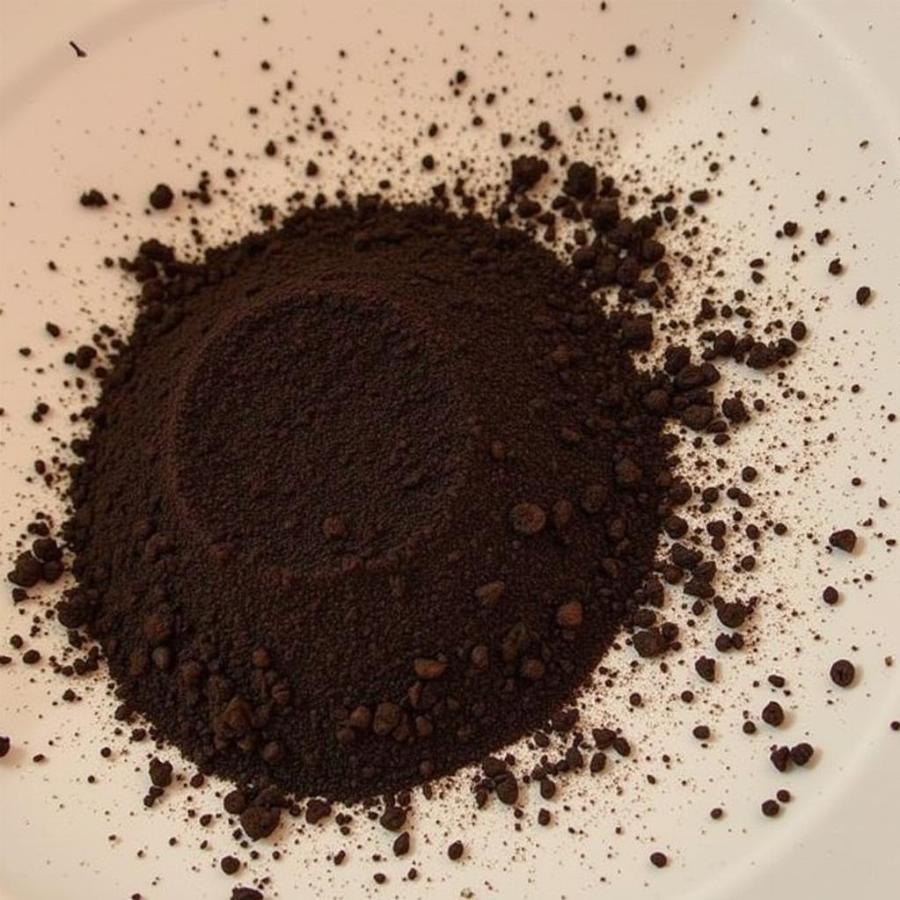Finding blood in your dog’s poop can be alarming, but it’s important to remember that it doesn’t always indicate a serious problem. However, it’s crucial to understand the possible causes and seek veterinary attention when necessary. This article will guide you through the common reasons for blood in dog poop, when to worry, and how to best care for your furry friend.
Understanding the Different Types of Blood in Dog Stool
Before panicking, take a closer look at your dog’s poop. The appearance of the blood can provide clues about its origin and potential severity.
Hematochezia: Bright Red Blood in Dog Poop
Hematochezia refers to fresh, bright red blood in your dog’s feces. It usually indicates bleeding in the lower digestive tract, specifically the colon or rectum.
Common Causes of Hematochezia:
- Dietary indiscretion: Eating something they shouldn’t have, like garbage, spoiled food, or foreign objects, can irritate the intestines and cause bleeding.
- Parasites: Intestinal parasites like roundworms, hookworms, and whipworms can cause inflammation and bleeding in the digestive tract.
- Stress colitis: Stress, anxiety, or changes in routine can lead to inflammation of the colon, resulting in bloody diarrhea.
- Anal gland issues: Infected or impacted anal glands can cause discomfort and bleeding during defecation.
Melena: Dark, Tarry Stools in Dogs
Melena, on the other hand, refers to dark, tarry stools, often described as looking like coffee grounds. This indicates digested blood, suggesting bleeding in the upper digestive tract, such as the stomach or small intestine.
Common Causes of Melena:
- Gastrointestinal ulcers: Ulcers in the stomach or intestines can cause bleeding, leading to melena.
- Inflammatory bowel disease (IBD): IBD is a chronic condition causing inflammation in the digestive tract, which can lead to bleeding.
- Ingestion of toxins: Ingesting certain toxins, such as rat poison, can cause internal bleeding.
- Certain medications: Some medications, like non-steroidal anti-inflammatory drugs (NSAIDs), can irritate the stomach lining and cause bleeding.
 Black, Tarry Dog Stool
Black, Tarry Dog Stool
When to Worry About Blood in Your Dog’s Stool
While some causes of blood in dog poop are relatively minor, others can be serious and require immediate veterinary attention.
Seek immediate veterinary care if your dog exhibits any of the following:
- Lethargy or weakness
- Loss of appetite
- Vomiting
- Pale gums
- Abdominal pain or swelling
- Blood in vomit
- Large amounts of blood in stool
- Prolonged diarrhea (more than 24 hours)
- Black, tarry stools (melena)
These symptoms could indicate a life-threatening condition requiring immediate medical intervention.
Diagnosing the Cause of Blood in Dog Poop
To determine the underlying cause of blood in your dog’s stool, your veterinarian will likely perform a thorough physical examination and ask about your dog’s medical history, diet, and any recent incidents, like possible ingestion of foreign objects.
Diagnostic tests may include:
- Fecal examination: Checking the stool for parasites.
- Blood tests: Assessing organ function, checking for infection or inflammation.
- X-rays or ultrasound: Visualizing the digestive tract for abnormalities.
- Endoscopy: Using a tiny camera to examine the digestive tract lining.
- Biopsy: Examining a small tissue sample under a microscope.
Treatment Options for Blood in Dog Stool
Treatment for blood in dog poop depends entirely on the underlying cause.
Some common treatment options include:
- Dietary changes: Switching to a bland diet or prescription food to soothe the digestive system.
- Medications: Antibiotics for infections, anti-parasitics for parasites, or medications to reduce inflammation or control bleeding.
- Surgery: In severe cases, such as intestinal blockages or tumors, surgery may be necessary.
Preventing Blood in Dog Stool
While not all causes of blood in dog stool are preventable, you can take steps to reduce the risk:
- Feed a high-quality diet: Avoid feeding table scraps and ensure your dog’s food is fresh and properly stored.
- Prevent scavenging: Keep garbage secured, and don’t leave food unattended.
- Regularly deworm your dog: Follow your veterinarian’s recommendations for parasite prevention.
- Provide a stress-free environment: Minimize changes in routine and create a calm and comfortable space for your dog.
- Schedule regular veterinary checkups: Early detection of any health issues can prevent complications.
Conclusion
Finding blood in your dog’s poop can be worrisome, but it’s essential to stay calm and observe your dog for any other symptoms. Contact your veterinarian immediately if you notice any alarming signs or if the blood persists. By understanding the potential causes, seeking prompt veterinary care, and following preventive measures, you can help ensure your furry friend stays happy and healthy.
FAQs about Blood in Dog Poop
Q: Is a little blood in my dog’s poop normal?
A: No, any amount of blood in your dog’s poop is abnormal and warrants a call to your veterinarian.
Q: Can stress really cause blood in dog poop?
A: Yes, stress can lead to colitis, which can cause bloody diarrhea.
Q: How can I prevent my dog from eating things they shouldn’t?
A: Keep your home free of potential hazards, secure garbage, and consider muzzle training for walks if your dog is prone to scavenging.
Learn More About Your Dog’s Digestive Health
For further information about your dog’s digestive health and other common canine health concerns, visit our articles on:
- dog not pooping after surgery
- why does my dog walk and poop
- orange poop in dog after chicken and rice
Beaut Dogs: Your Partner in Pet Care
Beaut Dogs is your trusted source for reliable and insightful information about the world of dogs. We provide comprehensive guides on breed characteristics, care tips, and expert advice to help you navigate the joys and responsibilities of dog ownership. For personalized support and answers to your dog-related questions, contact our team at [email protected]. Let us help you keep your beloved canine companion happy and healthy.